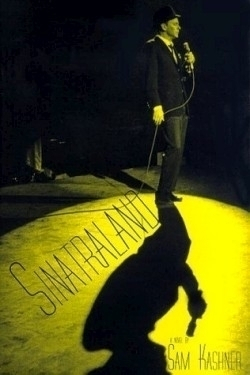Sinatraland
“I guess even bad television can be a force for good in the world,” Finkie Finklestein muses at the end of Kashner’s fine first novel about a man who idolizes Frank Sinatra. It is the kind of quirky idea that makes the book fun to read, and it could serve also as a metaphor for Finkie’s fixation on Sinatra and where it leads him.
Kashner, a writer and critic who teaches at the College of William and Mary in Virginia, uses an epistolary form for his tale: a series of letters from Finkie to Sinatra. Needless to say, Sinatra does not write back. The dramatic tension builds.
When we first meet Finkie he seems a sycophant whose only connection with his idol is that they both happen to have been born in Hoboken, New Jersey. In his letters to his idol his flattery and presumed friendship are sometimes so thick, it almost seems like sarcasm. Finkie makes like he’s one of the Rat Pack, filming movies with the rest of the fellows. “Ocean’s 11 was masterpiece,” he tells Sinatra. “I’m heartbroken, if a guy can be heartbroken, that I wasn’t available to make it Ocean’s 12.”
About the time Sinatra doesn’t respond to Finkie’s plea for a loan to help pay medical bills, the reader might expect the dark, twisted side of the fixation to appear, for the stalking and mayhem to begin. Instead, as the letters go on, Finkie takes on increasing depth. He is an articulate man with a rare capacity for honesty. The setting expands from one man’s interior landscape to a panorama of the middle decades of the century through which Finkie travels, selling window shades, falling in love, marrying, divorcing, raising a daughter, falling in love again. He never sets down his torch for his idol, but to the reader Sinatra begins to fade, to reduce in stature to silent confidant, a one-dimensional figure in contrast with Finkie’s fully developed character.
Of course, the whole thing eventually explodes in a remarkably plausible ending, during which Sinatra returns as large as life. By that time one has been touring Sinatraland long enough to look back and think about one of Finkie’s off-hand observations: “After all, Frank, a dream is a fantasy, and at the end of the day the fantasy is over and guys like us have to return to the real world.”
Reviewed by
Rich Wertz
Disclosure: This article is not an endorsement, but a review. The publisher of this book provided free copies of the book to have their book reviewed by a professional reviewer. No fee was paid by the publisher for this review. Foreword Reviews only recommends books that we love. Foreword Magazine, Inc. is disclosing this in accordance with the Federal Trade Commission’s 16 CFR, Part 255.

